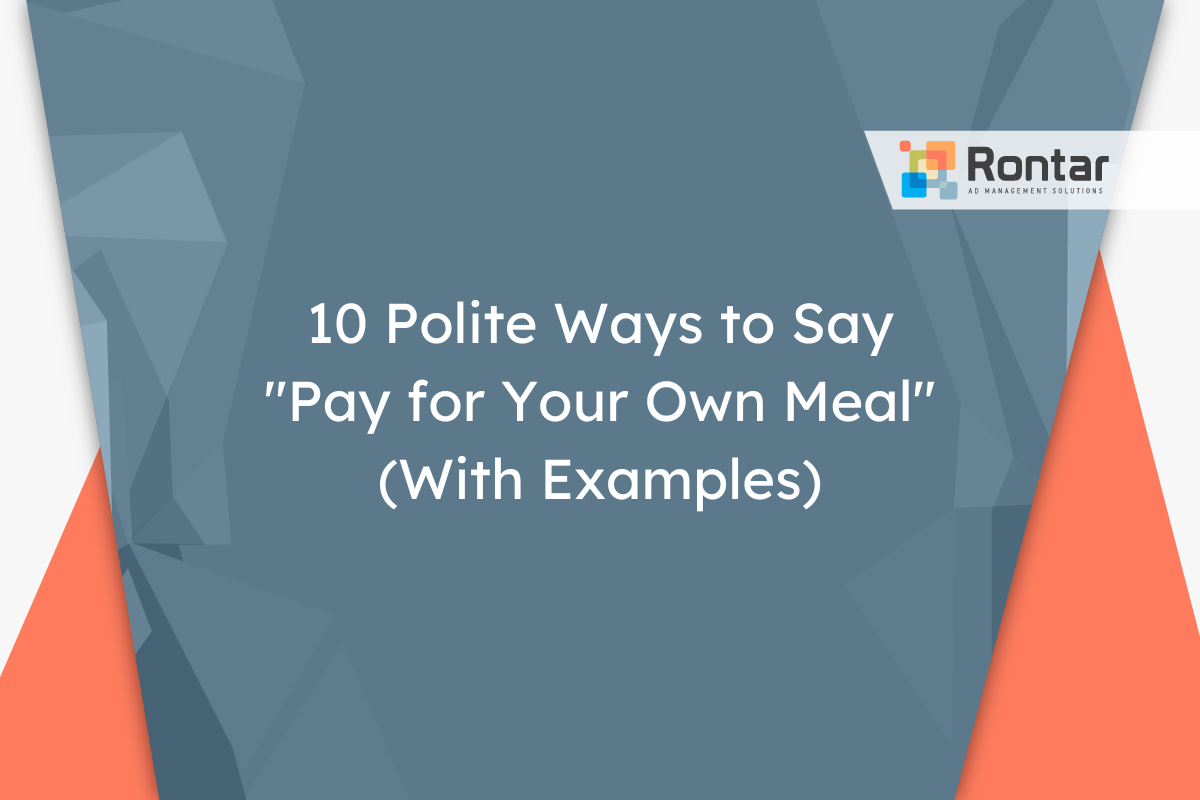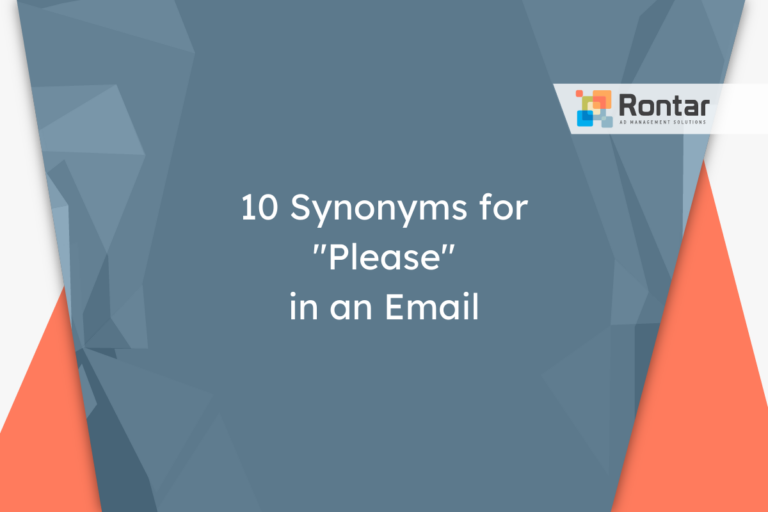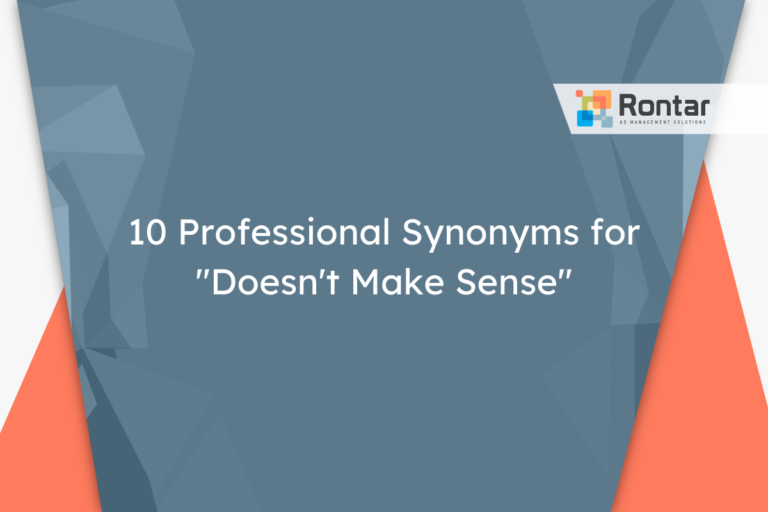10 Polite Ways to Say “Pay for Your Own Meal” (With Examples)

Sometimes you need to let people know they’ll pay for their own meals at an event or gathering without sounding rude or awkward. Finding the right words can be tricky, especially when you want to keep things polite and professional.
This article provides 10 different ways to communicate this message effectively. Each option is explained with when to use it and an example email, making it easy to handle this situation with grace.
Is It Polite to Say “Pay for Your Own Meal”?
When it comes to asking people to “pay for their own meal,” it’s crucial to consider the context. This phrase can be seen as informal and might not always come across as polite or professional. It’s better suited for casual gatherings rather than business events, weddings, or formal parties, where a more tactful language is expected.
Email example:
Dear John and Mary, You are cordially invited to our Business Networking Dinner on March 15th, 7 PM, at The Riverside Bistro. This event is a great opportunity to connect with peers in our industry. Please note, attendees are kindly asked to pay for their own meal. Looking forward to a productive evening together! Best regards, Alex Taylor Head of Marketing, Tech Innovations Inc.
Pros:
- Straightforward and clear
- Avoids later confusion about payment
- Effective among close friends or informal settings
Cons:
- May seem rude or too direct in formal settings
- Could potentially embarrass guests who were unaware or unprepared
- Lacks the finesse of more tactful phrasing
While being direct has its advantages, someone might prefer using an alternative phrase to keep the mood light and polite, especially in mixed or formal gatherings.
10 Other Ways to Say “Pay for Your Own Meal”
Here are ten alternatives that closely match the meaning of the original phrase:
- Please be prepared to cover your own meal costs.
- We kindly request that guests cover their own meal costs.
- Please note that meals will be self-sponsored.
- Meals will be available for purchase.
- Attendees are responsible for their own dining expenses.
- Dining options will be at guests’ own expense.
- Guests will have the opportunity to select and pay for their own meals.
- Attendees are encouraged to budget for their own meal expenses.
- Please prepare to purchase your meal at the event.
- Guests will have the opportunity to select and pay for their own meals.
1. Please be prepared to cover your own meal costs.
Compared to the original phrase, this alternative is more formal and polite. It sets a clear expectation without sounding too direct. This message not only respects the guests’ autonomy but also sounds professional. It’s a gentle reminder rather than a blunt instruction. This phrase works well for business events or professional gatherings, where clarity and courtesy are paramount.
This alternative is better for events where attendees might not expect to pay for their meal. The wording softly informs guests of the arrangement ahead of time, allowing them to plan accordingly.
Here’s an example:
Dear Colleagues, As we gather for our annual meet-up, please be prepared to cover your own meal costs at the conference dinner. This approach allows for a diverse selection of menu options to suit everyone’s tastes. We look forward to a productive and enjoyable evening. Best regards, Simon
2. We kindly request that guests cover their own meal costs.
This synonym for the original message elevates the level of politeness and formality. Including “kindly” softens the request, making it more acceptable in both professional and semi-formal settings. It’s a courteous way of handling the logistics of meal payments by making it seem like a humble request rather than a firm rule. This phrase is particularly well-suited for invitations to events like workshops, seminars, or casual business dinners.
This alternative shines when the event organizer wants to maintain a friendly, inviting tone without causing any confusion about meal payments.
Here is a sample email:
Dear Friends, As we plan our reunion dinner, we kindly request that guests cover their own meal costs. This will allow us all to enjoy a more varied selection from the menu. Your understanding and cooperation are greatly appreciated. Warmly, Emily
3. Please note that meals will be self-sponsored.
This alternative adopts a professional and formal tone, perfect for corporate events or professional gatherings where attendees might expect some expenses to be covered by the hosting organization. Using “self-sponsored” introduces a smoother, less direct way of informing attendees about meal payments, making it a synonym for the more blunt original. This phrasing suggests that guests have control over their choices, aligning with the expectations of self-reliance.
When clarity and professionalism are key, especially in a setting where guests might not automatically assume they need to pay for their meals, this phrase is an excellent choice.
Email example:
Dear Participants, Regarding our upcoming seminar, please note that meals will be self-sponsored. We recommend reviewing the venue's menu in advance to plan your dining experience. Your understanding is much appreciated. Sincerely, Laura
4. Meals will be available for purchase.
This version is distinctly more informal than its counterparts, implying a laid-back, casual event where guests can buy their food. It’s a straightforward message but delivered in a way that feels less like an instruction and more like an option. This choice is particularly effective for events where the meal isn’t the main focus but still available for those who are interested.
For casual meetings, outdoor events, or less formal gatherings, this alternative sets the right tone, indicating that while meals aren’t provided, they’re easily accessible.
Sample email:
Hey Team, Looking forward to seeing you all at the team-building day! Just a heads-up, meals will be available for purchase at the park's food stands. Can't wait to spend some quality time together outside the office. Cheers, Jordan
5. Attendees are responsible for their own dining expenses.
This statement is a bit more on the formal side, making it an excellent alternative for professional settings. It’s a tactful way of stating that guests will need to pay for their meals, positioning it as a matter of personal responsibility. This wording can especially suit conferences or networking events where attendees might expect this kind of arrangement.
When the goal is to convey information clearly and maintain a professional atmosphere, this phrase is particularly useful. It implies readiness and responsibility, ideal for events where attendees are professionals managing their expenses.
Email example:
Dear Conference Attendees, Please be reminded that attendees are responsible for their own dining expenses during the event. We recommend exploring the variety of dining options available at our venue. Thank you for your understanding. Best, The Conference Team
6. Dining options will be at guests’ own expense.
This choice frames the information in a manner that’s both formal and polite. It subtly informs guests that while there are dining options available, these will be at their own expense. This phrase is a smooth way to manage expectations without sounding harsh or demanding. It’s well-suited for events where multiple dining options are available, such as conferences or large social gatherings.
For events that offer a range of choices but require guests to pay for what they select, this wording strikes the right balance between informative and courteous.
Email example:
Dear Guests, We are excited to host you soon. Please note, dining options will be at guests’ own expense. We’ve arranged for a selection of esteemed restaurants to cater to our event, providing a spectrum of culinary delights. Looking forward to a memorable evening, Isabella
7. Guests will have the opportunity to select and pay for their own meals.
Among these synonyms, this phrase is quite informal and polite, offering a positive spin by framing meal payment as an opportunity rather than a requirement. It suggests flexibility and choice, making it great for less formal gatherings or events with a variety of food options. This message has a welcoming tone, emphasizing the guests’ freedom to choose.
This alternative works best in settings where variety and personal preference are prioritized, such as casual gatherings, potlucks, or events with multiple catering options.
Email example:
Dear Friends, For our upcoming picnic, guests will have the opportunity to select and pay for their own meals from the array of food trucks we’ll have on site. We believe this will add to the fun and variety of our day together! See you there, Hannah
8. Attendees are encouraged to budget for their own meal expenses.
This phrase leans towards the formal side, subtly hinting to guests that they should plan for meal costs. It’s a considerate way of reminding guests to allocate funds for this part of the event without directly stating they must pay for their meals. This alternative is effective for events that are somewhat formal yet still require attendees to handle their dining costs.
It’s apt for business or networking events, where transparency about expenses is appreciated but needs to be communicated gently.
Example:
Dear Workshop Participants, To ensure a comfortable and enjoyable experience, attendees are encouraged to budget for their own meal expenses. We have secured a venue with diverse dining options to cater to your preferences. Kindly, Greg
9. Please prepare to purchase your meal at the event.
This message is straightforward and slightly informal, making it clear that guests should expect to buy their meals. It’s less about suggesting or hinting and more about directly stating the meal arrangement. This alternative is perfect for events where meals are not included in the ticket price or entry fee, such as festivals, casual meetups, or community events.
For occasions where the event’s focus isn’t on dining, but meals are available for those who want them, this phrase is ideal.
Example:
Hi Everyone, Excited for our upcoming book club meeting! Please prepare to purchase your meal at the event. There will be delicious options available for everyone to enjoy. Can't wait to see you all, Linda
10. Guests will have the opportunity to select and pay for their own meals.
This phrase is similar to number seven and offers a polite and slightly informal way to communicate about meal costs. It emphasizes opportunity and choice, making it a pleasant way to inform guests about the food arrangement. This message is especially suitable for casual dining events or gatherings where guests might appreciate the flexibility to choose what they eat.
When you want to keep the atmosphere light and offer choices to your attendees, this alternative is an excellent way to convey your message.
Sample email:
Hello Book Club Members, Just a note for our next meeting: guests will have the opportunity to select and pay for their own meals from the café’s menu. This should allow everyone to find something they love! Best wishes, Sarah
Final Thoughts
Choosing the right words to tell guests they need to pay for their own meals is important. It helps maintain a friendly atmosphere and ensures everyone knows what to expect. The alternatives we discussed offer a range of options, from formal to informal, so you can find the best fit for your event.






